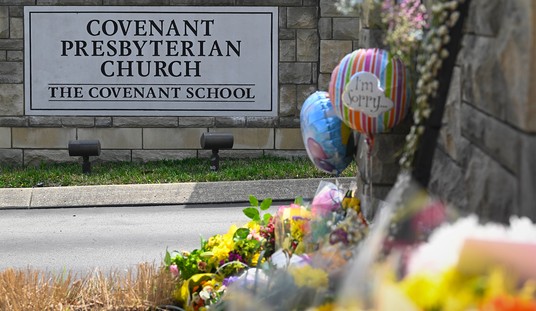When I grew up, learning logic wasn’t part of any school curriculum I was part of. Classical education wasn’t much of a thing around these parts and so learning formal logic just wasn’t an option. As such, I didn’t learn about things like logical fallacies until well into adulthood. Once I did, though, I became fascinated with them, particularly informal fallacies.
Those are the fallacies we can most easily recognize in our day to day life. They make it easier to check your arguments and, at least in theory, make them a little more criticism-proof.
However, there’s one fallacy called the Slippery Slope Fallacy that is kind of tricky. See, it argues that it’s a fallacy to claim something will lead to a slippery slope…unless it actually will lead to a slippery slope.
In other words, it’s wrong unless it’s not wrong. I hope that clears everything up for you all.
Anyway, slippery slopes do exist. We in the gun rights community have watched it first-hand for years. What’s more, it’s not restricted to gun rights, either.
I’ve often heard gun rights supporters object to restrictions on gun ownership by various people (including felons, people subject to domestic restraining orders, and the like) by analogy to speech restrictions: We wouldn’t ban a person from public speaking just because he had once been convicted of a crime (assume he’s out of prison now, and no longer on probation); why should we do the same as to guns? Conversely, the argument goes, if courts accept the gun restrictions, those restrictions would end up being used as analogy to restrict other rights, too.
I don’t think this is an open-and-shut argument; different constitutional rights involve different kinds of risks, and are therefore often treated differently. It may well be that the dangers posed by gun ownership by people with a criminal record (especially a record of violent crime) may justify a ban, but the different dangers posed by speech wouldn’t; and there is indeed more of a tradition—though only dating back about a century or less—of restrictions on gun ownership by felons.
Nonetheless, here’s one data point in favor of this argument, a case that I had read before but hadn’t focused on until now. (I’m finishing up an argument on overbroad injunctions against speech, and I’ll be discussing the case in detail.) The case is Best v. Marino, decided 2017 by the New Mexico Court of Appeals (for background, see this Nature news blog post [Helen Shen]):
In this case, a restriction on gun rights is used to justify infringing on someone’s freedom of speech. The case involved a reported stalker who continued to talk about her subject via internet posts.
Now, understand that I don’t want to delve into freedom of speech with regard to stalkers because, well, I don’t want to.
However, it’s important to understand that any infringement in one right is used to justify restrictions in another. For example, how many times have you heard people claim that gun control is acceptable because you can’t yell “fire” in a crowded theater? That claim is a gross oversimplification of what that case was actually about–it was about the harm caused by doing so and doesn’t forbid anyone else from doing it so long as there’s no attempt to convince people of a non-existent fire–but it’s still used to justify gun control.
Further, gun control can well be used to justify restricting other rights.
That’s why so many of us refuse to budge on our stands against further gun control. Not just are our gun rights vital, but so are our other civil liberties. Those same liberties could be threatened and those threats justified by infringement of our Second Amendment rights.
No right exists in a vacuum. All of our rights exist or all of them are threatened. It’s just that simple.








Join the conversation as a VIP Member